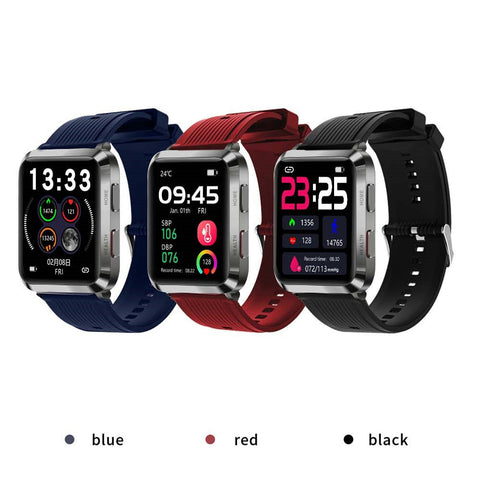Best Inexpensive Smart Watches
Weight loss needs to be gradual. The quick way to lose weight can take its toll on the body. Let's take a look at how to lose weight healthily.
Sudden rapid weight loss can have many side effects on the body, such as:
- Induce the occurrence of gallstones and the onset of gout;
- The body has no time to adjust and adapt to the rapid disappearance of subcutaneous fat, resulting in excessive loose skin;
- Gastrointestinal symptoms such as nausea and vomiting caused by too strict diet control, as well as physical weakness such as fear of cold, dizziness, and general fatigue;
- Female menstrual disorders or even amenorrhea;
- Insufficient protein intake can lead to hair loss, brittle nails, poor skin elasticity, etc.;
- In severe cases, it can also lead to dehydration, electrolyte imbalance, thrombosis, and even induce pulmonary embolism, arrhythmia or renal insufficiency.
Losing weight is the process of changing bad habits
The purpose of losing weight is to make us healthier. If you lose weight inappropriately and damage your health, the loss outweighs the gain.
The appropriate weight loss rate is preferably 1 to 2 catties per week (not 1 catty per day!), preferably around 1% of your body weight. For example, for a person weighing 200 catties, it is acceptable to lose 2 catties per week, but any more will be too fast. As the body weight drops, the basal metabolic rate will decrease, and the rate of loss will also slow down.
Each person's body weight is a reflection of the difference between energy intake and energy expenditure on a daily basis.
If you eat more than you burn, you will gain weight; if you eat as much as you burn, your weight will stay the same. If you want to lose weight, you must reduce your intake or increase your consumption to break the balance of weight and achieve the goal of weight loss.
Weight is not gained in a day, nor can it be lost in a day or two. This is a long-term process of changing past bad living habits.
Don't believe in those "mysterious formulas", and there is no "magic diet pills". Diet plus exercise is the kingly way to lose weight.
How much should you eat a day?
Daily energy intake, as well as the energy contained in food, is generally estimated in calories, and the unit is generally kilocalories, also called kcal.
Everyone's daily energy requirements are related to body weight and activity level.
- People who are lightly active (sit or stand 75% of the time, move or exercise 25% of the time), need about 25-30 kcal/kg of energy per day.
- People with moderate activity (50% sitting or standing, 50% active) need about 30-35 kcal/kg of energy;
- People with heavy activity (25% sitting or standing, 75% active) need about 35-40 kcal/kg of energy per day.
- For example, a person weighing 70 kg and moderately active requires about 30 x 70 = 2 100 (kcal) per day.
That is to say,
If he eats 2 100 kcal per day, his weight will remain basically the same;
If he wants to gain weight, he must eat more than 2 100 kcal per day;
If he wants to lose weight, he must consume less than 2,100 kcal of energy per day, or increase the amount of exercise, so that it is possible to break the energy balance between daily intake and consumption, and achieve the goal of weight loss.
Summarize
Some people may have doubts, the stricter the daily dietary intake is, the easier it is to lose weight? If you eat less than 500 calories per day, you can lose 1 catty per week; if you eat less than 1,000 calories per day, you can lose 2 catties per week. Then I just eat a little bit every day, wouldn't it be better?
Indeed, in the 1980s and 1990s, a very low-calorie (daily intake of 400-800 kcal) weight loss method was popular for a while, which was to strictly control the daily energy intake to achieve the purpose of rapid weight loss.
However, controlling the daily intake too strictly will bring many side effects and seriously affect the health of the body. Moreover, such weight loss does not last long, and the weight rebound afterward is very obvious.
So slowly, people are adopting more and more low-calorie diets (800-1500 kcal per day) or balanced diets (more than 1500 kcal per day, but still 500 kcal ~1 000 kcal less than the daily energy requirement), to achieve healthy and reasonable long-term weight control. BP Smartwatch can accompany you on your weight loss journey, monitoring calories, blood oxygen, blood pressure, respiratory rate, etc. There are also a variety of exercise modes to choose from.










